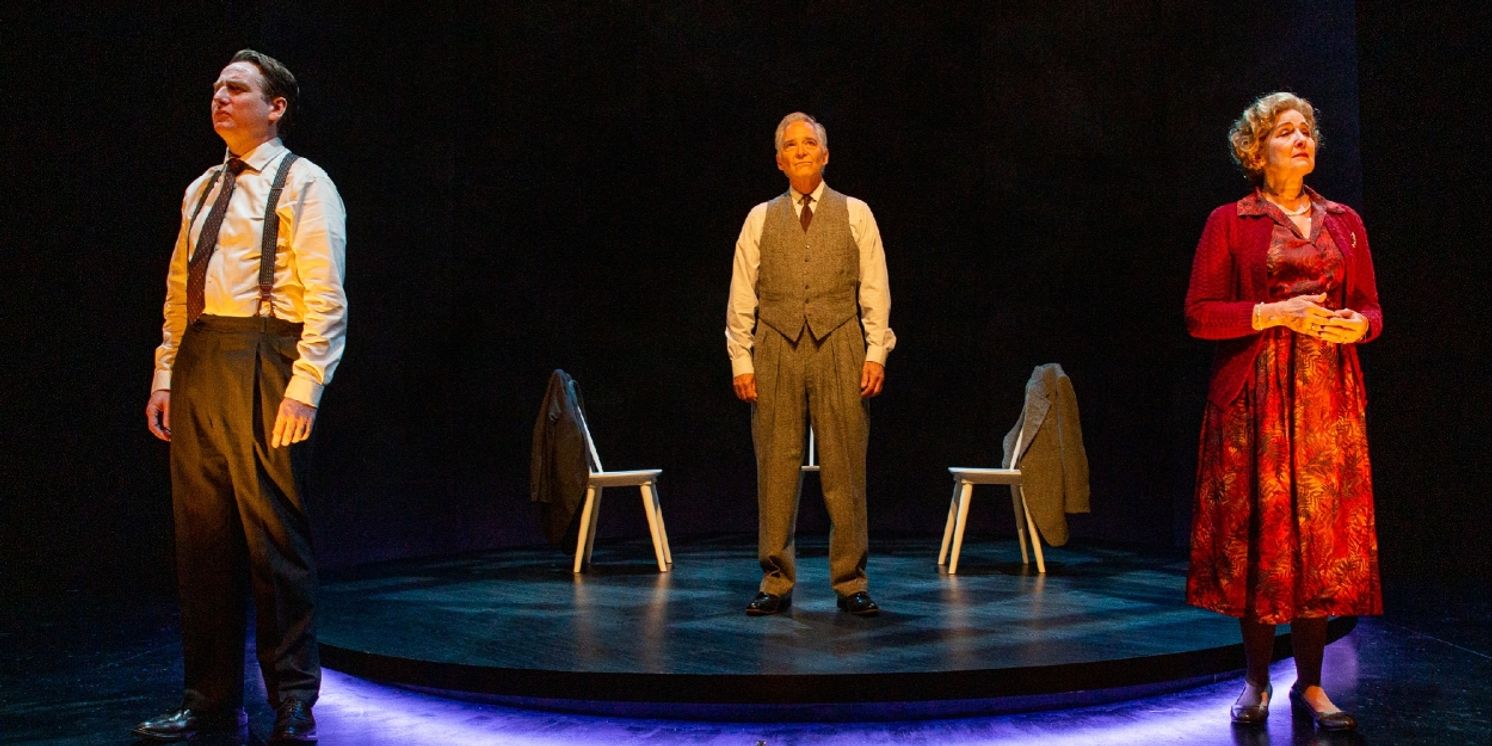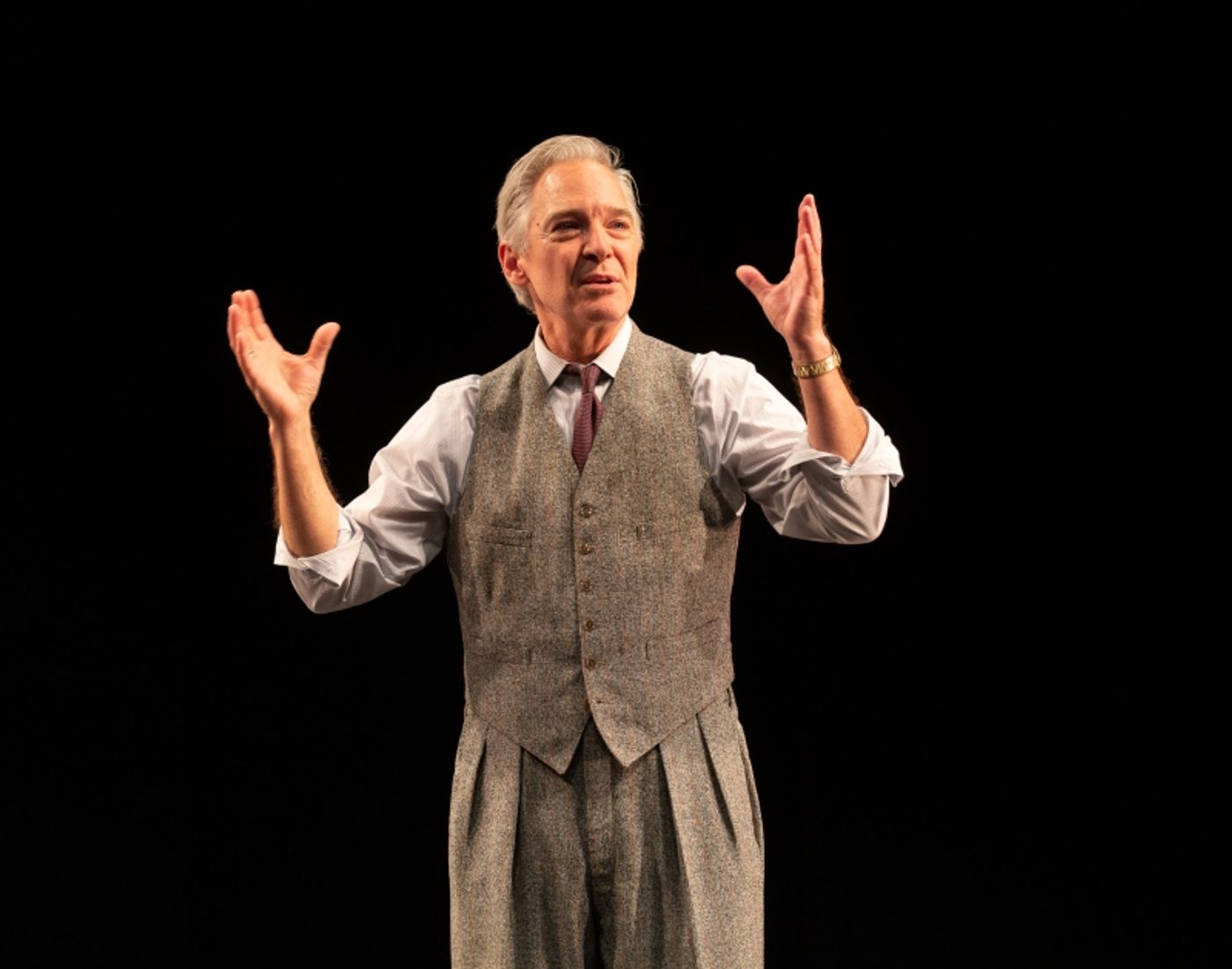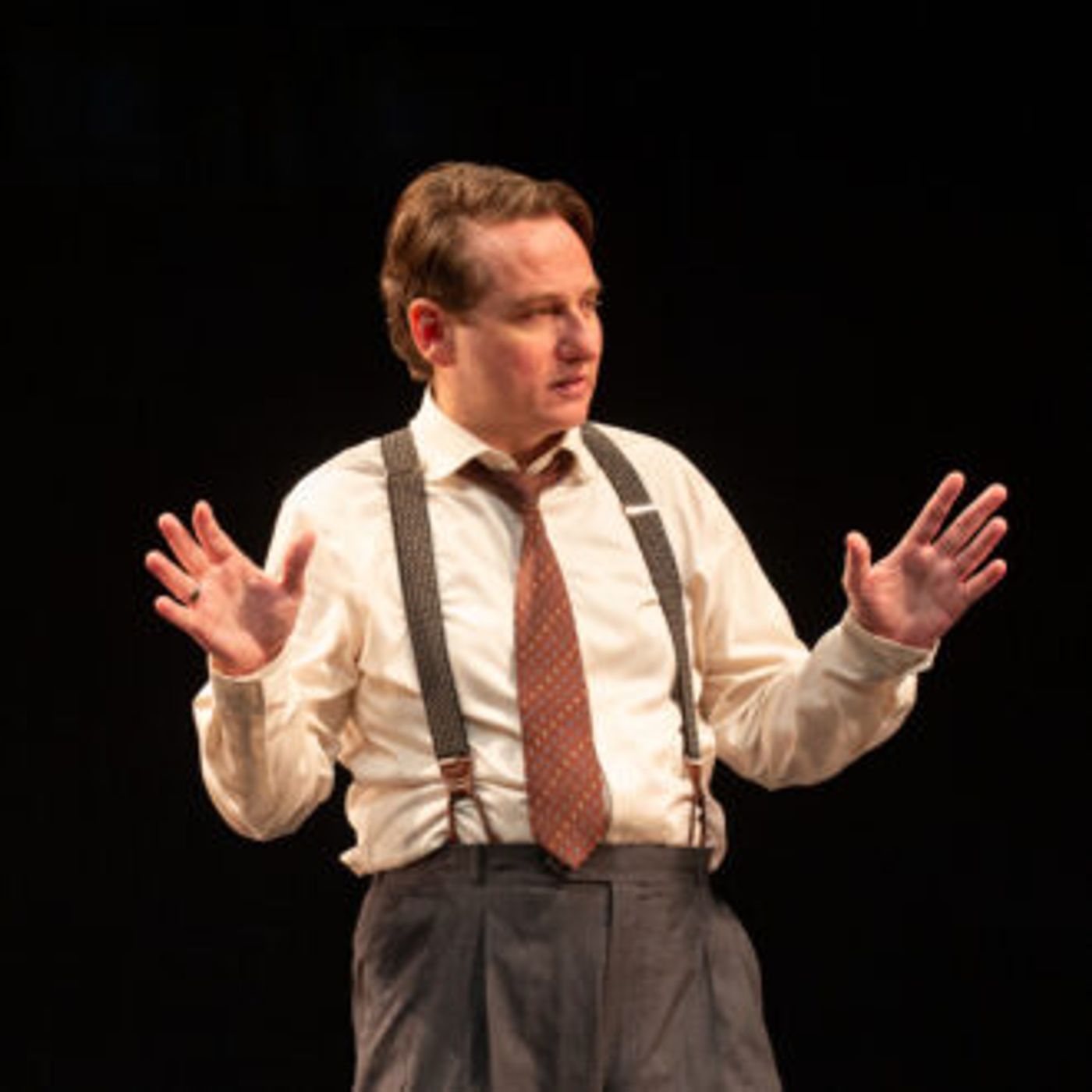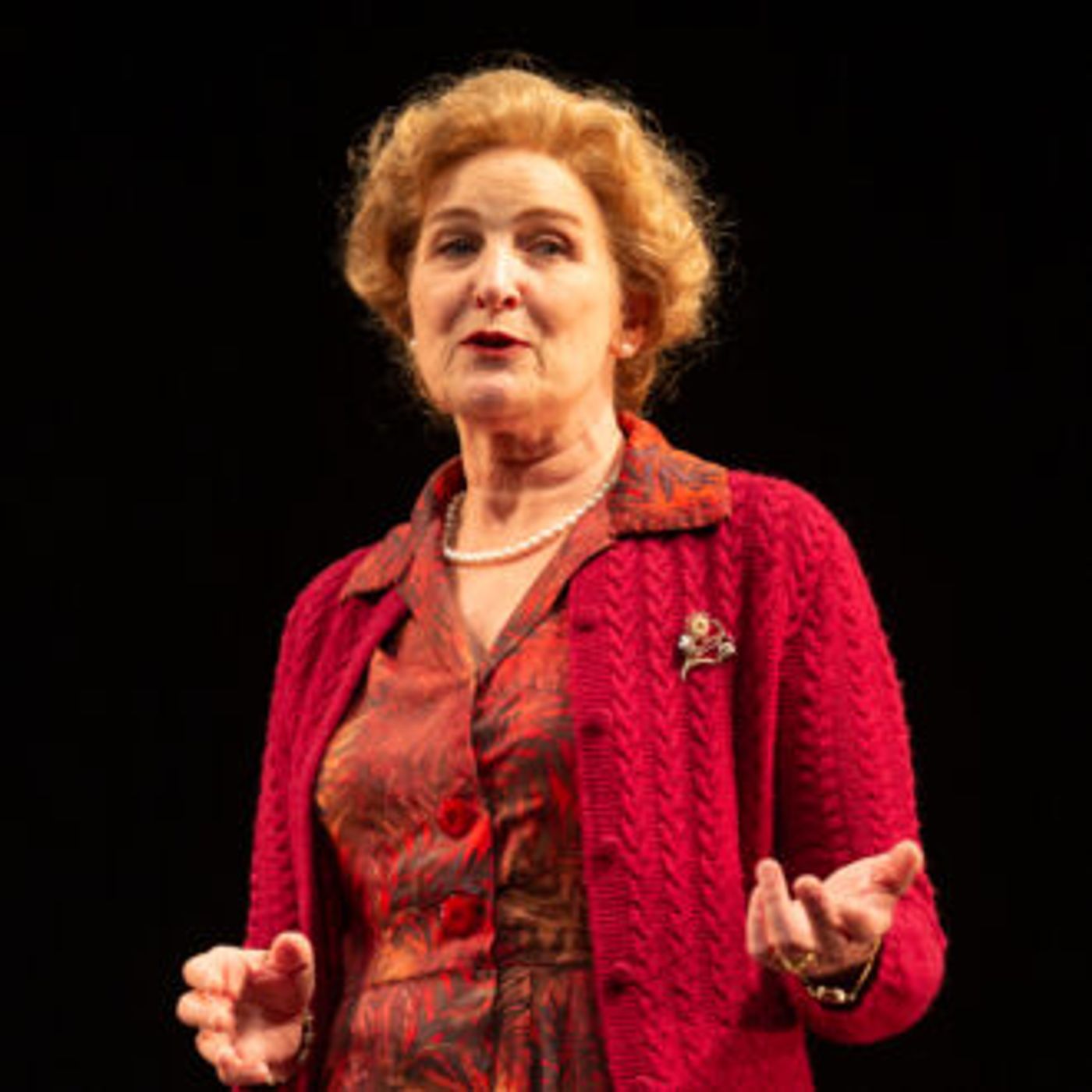Review: COPENHAGEN At Berkshire Theatre Group
COPENHAGEN is a gripping play that explores the events surrounding a mysterious and fateful meeting between two of the most brilliant minds of the 20th century.

COPENHAGEN is a gripping and intellectually stimulating play that explores the events surrounding a mysterious and fateful meeting between two of the most brilliant minds of the 20th century: Niels Bohr and Werner Heisenberg. Niels Bohr is joined by his wife Margrethe, as they engage in a heated and thought-provoking conversation with Heisenberg. As the conversation unfolds, the characters grapple with their past and present roles in the development of atomic weapons and the potential consequences of their work. Set in Nazi-occupied Denmark during World War II, the play is a fascinating exploration of the ethics of science and the consequences of our actions

Photo: David Dashiell
Throughout the play, audiences are taken on a thought-provoking journey through the minds of these two Nobel laureate physicists who were at the forefront of the development of the atomic bomb. The play delves deep into their personal lives and the motivations behind their work, exploring the complex relationships between them, their families, and their governments.
As Director Eric Hill points out, “this is not a historical drama. Although Bohr and Heisenberg are two of the most important nuclear physicists of the 20th century, this is not specifically a science play. COPENHAGEN is a ghost play; the characters are ghosts behaving according to rules that do not extend to the living. They have the added perspective of hindsight when they choose to use it. They can jump seamlessly from one moment in time to another and can address a ghostly audience of their own making – an audience charged, perhaps, with keeping the historical record our ghosts are eager to get straight, even in the afterlife. Accordingly, although the characters are based on historical figures, their setting in the afterlife allows for an imaginary journey into who they were and what they thought.”

Photo: David Dashiell
When the lights go dark signaling the end of production and I am compelled to say “WOW”, it is typically a particularly good thing, and that was certainly the case with COPENHAGEN. I suppose that should not be surprising given this play took home the Tony Award for Best Play in 2000. Michael Fray’s script is brilliant. Something akin, in my opinion, to Shakespeare. Fray uses a delicate but superbly balanced mix of complex scientific dialogue related to Physics with general human behavior, and interpersonal dynamics. While there are ample opportunities for the non-scientific (of which I consider myself to be one) to drift off / give up based on content so very technical and theoretical in nature, we are thrown a life-line and brought back into the piece and its more overarching theme(s). This point was driven home for me during the second act when Bohr poses the question something to the effect of who amongst men would dare to explore the answer to a question which would ultimately lead to the catastrophic impact on life?

Photo: David Dashiell
The cast features David Adkins as Niels Bohr, Corinna May as Margrethe Bohr, and Harry Smith as Werner Heisenberg. Each deliver highly commendable performances that deservedly fall within the category of excellence. Not only does each deliver strong, plausible characters without question; their mastery of an inordinately large volume of dialogue, most of it at the level of PHD holders and make it seem part of their natural daily speech patterns, is both remarkable and impressive.
On the surface COPENHAGEN may very well seem to be not everyone’s cup of tea, appealing to those with a particular interest in science or perhaps history. On the surface it does not. I assure you, however, that those who are open minded, and willing to work (think) just enough to experience this first-rate production at Berkshire Theatre Group’s Unicorn Theatre in Stockbridge where COPENHAGEN continues through October 29 will likely be very happy, they did.
Reader Reviews
Videos

